(Content warning: the suicide of a side character in this episode)
Hey, remember last week when I said that I wondered if we were going to see Morland Holmes soon? Man, am I good or what? Morland, played by the incomparable John Noble, shows up on Sherlock’s doorstep to discuss Mycroft’s death.
The conversation is understandably strained. Sherlock and Morland share some buttoned-up, British grief. That’s nice, but on the other hand, Morland casually mentions that Mycroft was his sole heir. Less nice. Morland intends to change his will now. Sherlock tells his father that he was reaching out to Mycroft in order to give up his grudge on him and he’d like to do the same with his father. Morland has been working on quietly dismantling Moriarty’s network, which he now leads, but there’s still work to do.
Speaking of work, a call from Bell about a case interrupts father-son awkward bonding time. Some “urban spelunkers” exploring an abandoned fallout shelter found it wasn’t so abandoned after all. A strange man ran away at their approach, leaving behind the dead body of a woman.
The victim is a Jane Doe and has been dead for a few days. The mysterious man was removing her organs and putting them in jars. But Sherlock doesn’t think this is the case of some sicko. The interrupted process instead resembles that of Egyptian mummification. Someone was trying to make a forgery of a real mummy.
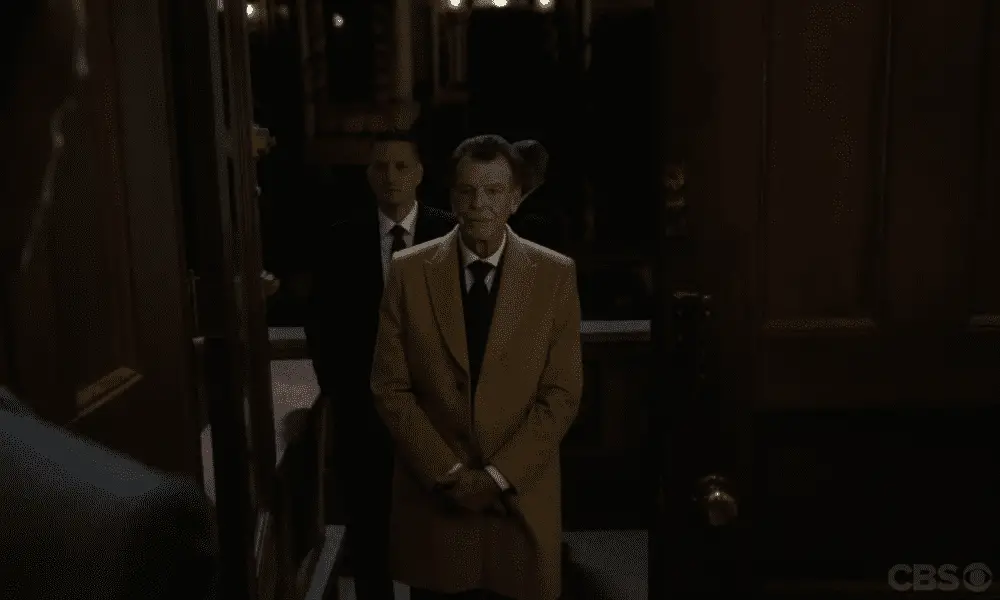
Captain Gregson consults with a Professor Hausmann, an Egyptologist. He’s able to identify the real mummy that the forger is imitating: Sobekneferu. She was a rare female pharaoh who was murdered early into her reign. Her mummy has never been found. Hausmann doubts that this is a case of murder at all. It might just be grave robbery.
But Sherlock disagrees. Sobekneferu was murdered with an ancient Egyptian sword. The Jane Doe had matching injuries on her body. There’s no way she died of natural causes or an accident. Interestingly, the pre-mortem wounds with the sword are strong and confident whereas the post-mortem cuts are more hesitant. This suggests that the murderer and the forger are different people and gives Sherlock a lead as to the killer.
There’s a local martial arts studio that attempts to reconstruct ancient fighting methods and weapons. Any of the students or instructors could be an expert in the ancient Egyptian sword. But given that someone at the studio bought a sword fitting the bill, it’s more likely to be an instructor. When one of them attempts to attack Bell with a sword, it’s clear whose guilty.
The swordsman is unexpectedly willing to be helpful. He was hired to kill the Jane Doe and he hopes that rolling on the man who hired him will grant him leniency. Unfortunately, he doesn’t actually know who that person is. A mysterious man who called himself “The Theban” had hired him for the kill. The Theban had also contracted two other murders in order to make other mummies. But in those cases, the Theban had only asked for Middle-Eastern men, whereas in Jane Doe’s case, he wanted a specific woman dead. Her name is Mischa Farrell. She also wasn’t Middle Eastern. That seems weird if it was just about the forgery. Maybe the Theban had a specific reason to kill her? If they can find someone with a grudge against her, maybe they find the Theban.
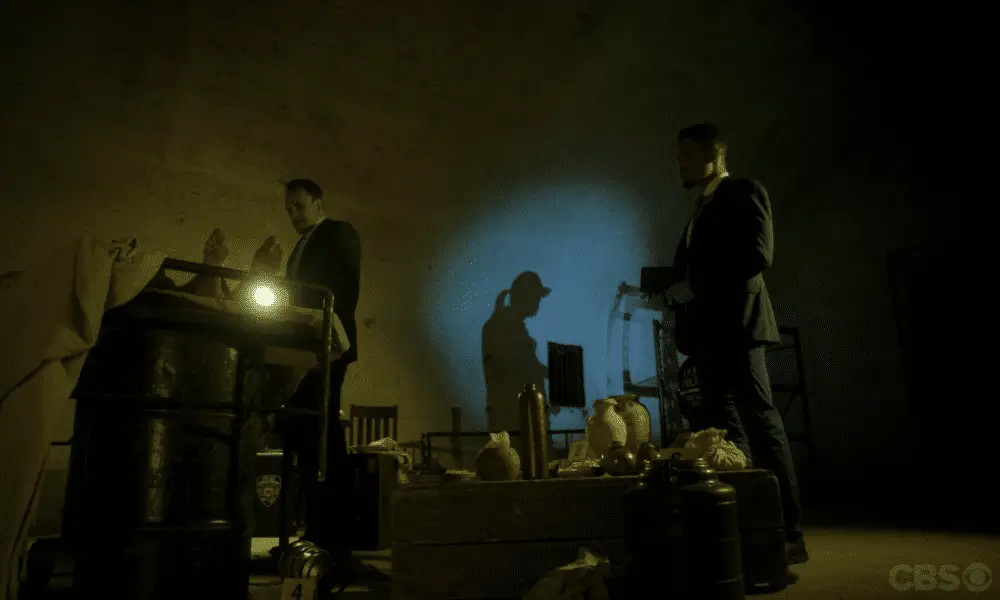
Mischa Farrell doesn’t initially seem to have any obvious enemies. She designed book covers and art catalogs, which links her to the art world, but she has no obvious enemies. But in her financials they notice a lawyer fee and a large payment. It must be a settlement and that means a grudge.
It turns out one of the art dealers she worked with was sexually harassing her. That made me laugh because the boss is played by the actor who played Colin Sweeney on The Good Wife, a character famous on the show for his weird sexual proclivities. The poor actor must just look like a pervert. But anyway, Colin Sweeney claims he didn’t hold a grudge against Mischa for the sexual harassment suit. He’s repented on his wrongs. Instead, he points them to Mischa’s ex-girlfriend, Ricky, who owed Mischa money.
Ricky, however, says that she was working off her debt. Mischa was making a book of her own and Ricky was helping her. She’s got a trick for identifying painters based on their brushstrokes. Mischa was tracking an art forger that she called Van Faux. An art forger, hmm. If she got too close to identifying him, maybe he killed her for it.
Meanwhile, Sherlock and Morland get the will changed. Sherlock nobly refuses the inheritance, saying he’d prefer the money go to charity. Big words for a man that gave his friend thousands of dollars just last week. As the two men discuss, Sherlock notes a man across the street watching them.
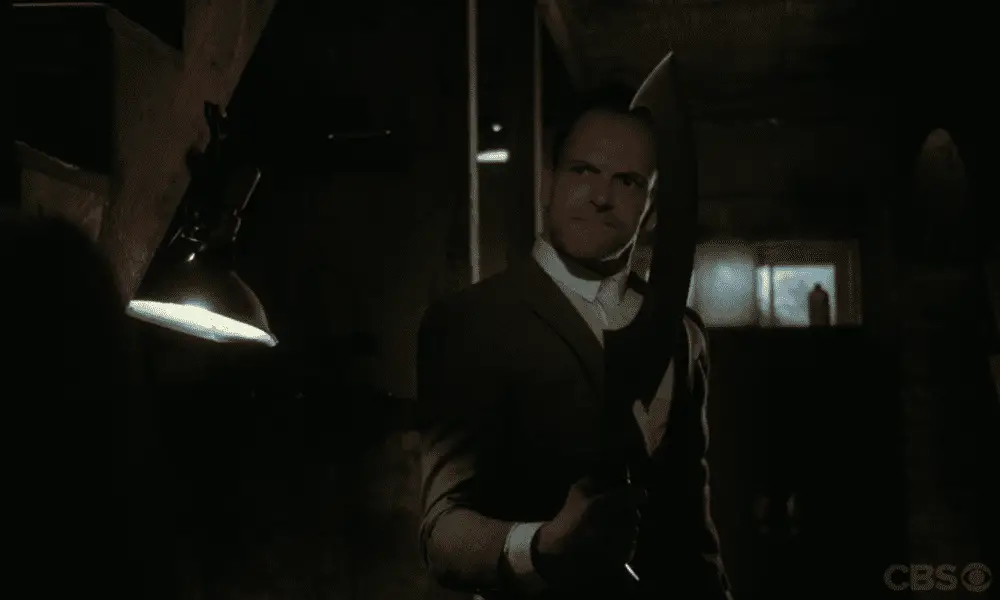
Joan has been trying to identify Van Faux. But so far she’s struck out on trying to track him via antique paints and art supplies. Sherlock wants to leave the case to Joan and focus on finding his father’s stalker…but he can’t resist sticking his nose back in and solving this particular problem. Such a typical man. Van Faux is using real 17th century canvasses for his art. He must be buying up old, unimportant paintings from that era and using them for canvas.
This leads them to a man called Jasper Wells. He is Van Faux, and he did know that Mischa was on his trail. But he didn’t kill her. He was her father.
After his daughter was born, he’d given up on his failed art career and instead turned to art forgery to support his family. Mischa grew up watching him paint and in adulthood realized he was a forger. But she was proud of his work and wanted him to gain credit for his creations. She wouldn’t listen when he said wanted to stay hidden and thus was writing the book. But Wells knew what Mischa didn’t: the world of art can be dangerous. Many criminals use art purchases to move money and illegal good. If Wells’s forgeries were revealed to the world, a lot of people would lose money. Some of those people were dangerous. Maybe one of them killed Mischa?
Wells, by the way, only forged Dutch artwork. He isn’t the Theban, but he’s heard of him before. The Theban is famous among forgers for being able to fake carbon dating on his forged antiquities. But Sherlock and Joan know that’s scientifically impossible. They theorize the Theban started that rumor to cover up that he had an art authenticator in his pocket…or that he was an art authenticator himself. Hey, you know who else is an authenticator and tried to tell them that Mischa wasn’t murdered? That’s right, Professor Hausmann who consulted on the case.
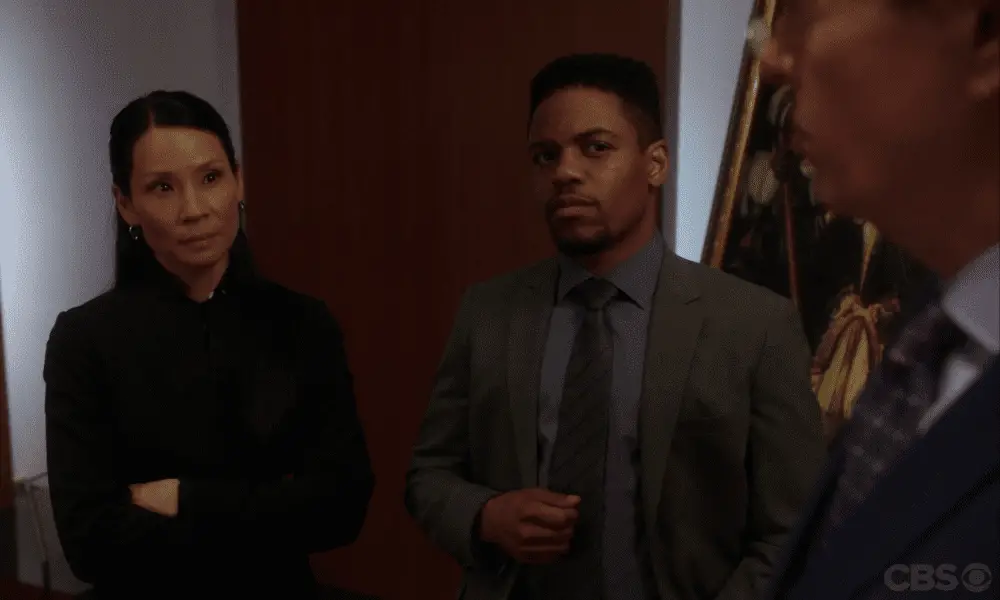
Alas, someone else gets to Hausmann before they can and shoots and kills him. The plot thickens. Joan is able to confirm that he really was the Theban. But there isn’t any clear connection between him and Mischa. Now the detectives wonder if he was also paid to kill her. (So wait, someone paid him to pay someone else to kill Mischa? Shh, don’t think about it too hard.)
Now they have to figure out who was connected to the Theban, Mischa, and Van Faux. It seems less likely that it was someone that bought one of Wells’s forgeries. But Wells used a middleman to sell his forgeries. The Theban probably did too. If any of the dangerous criminals in the art world figured out they’d been sold a forgery, they would not be happy. Someone might kill to cover that up.
(Here’s the content warning!) Sherlock has solved his own little mystery. He finds the man following his dad and corners him in his hotel. It’s not just any stalker, but an international assassin that trained under one of Moriarty’s own personal killers. Let’s repeat, Sherlock is alone in a room with him. Are you making healthy choices, bud? Sherlock initially accuses him of killing Mycroft which is…sad. But Mycroft’s death was just what it seemed. However, when Sherlock then asks the man who hired him to kill Morland, the assassin kills himself rather than answer.
Joan and Bell identify an art seller that has a connection to Mischa, her dad, and the Theban. He’s their killer. It’s also exactly who I thought it would be, which I found very amusing, but I won’t spoil it.
Sherlock meets with his father to tell him about the assassin. This doesn’t surprise Morland. He’d been expecting something like this. One final problem. After all, he’d heard that a certain someone had escaped. That’s right. Moriarty herself is back, at long last!
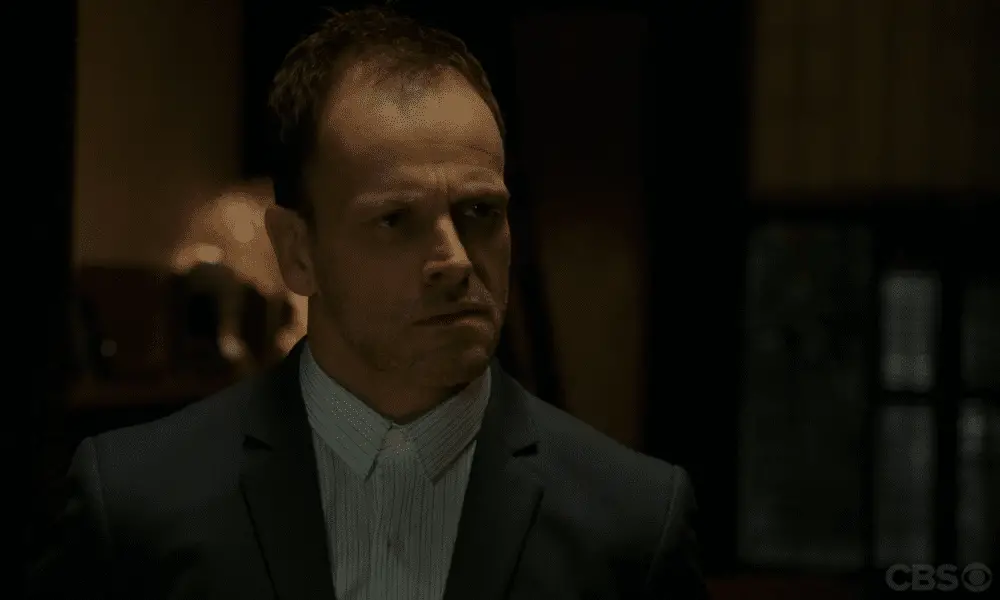
Thoughts:
- This was a good, solid episode. A mystery that was twisty, but not too twisty, not trying too hard. The crime is based on a real type of crime that I hadn’t heard of before, so I learned stuff. Some subtle emotional work. That’s what I’m here for!
- There was a lot of great, subtle parallels this episode. Joan is trying to have a baby and Sherlock’s dad returns. A story about art forgery reintroduces Moriarty, who was living as an art forger when Sherlock met her. Very nice.
- Is it hypocritical of me to criticize BBC Sherlock for its fixation on Moriarty and yet be excited that it seems like she’s coming back on Elementary? No, because BBC Sherlock used Moriarty so much that it became tedious, whereas Elementary has skillfully built suspense by only referring to her here and there. It’s better storytelling. That’s right, I said it.
- But here’s some criticism. I worry that the writers are falling back into bad old habits. Last season, I criticized them for having lots of short, complicated story arcs instead of a long, consistent arc. Kitty, Bell, and Chantal, Sherlock’s illness…none of those were bad stories, but they didn’t receive the time they deserved and as such they ultimately distracted from the main arc about Shinwell. I worry they’re doing that again this season. Michael seemed like he was going to be the main plot, but I do not care about him, like, at all, if Moriarty is in the mix. Moriarty and Joan’s baby should be the primary storylines.
- This is what would work for me: A few episodes down the line, maybe the mid-season finale, Michael dramatically returns. It’s all tense, you’re wondering how they’re going to catch him, and then Moriarty casually shows up and kills him. How dare he play with her toy? Then the rest of the season is about trying to catch her. Let’s check back in a month or so to see if I totally called it, shall we?
Images courtesy of CBS

